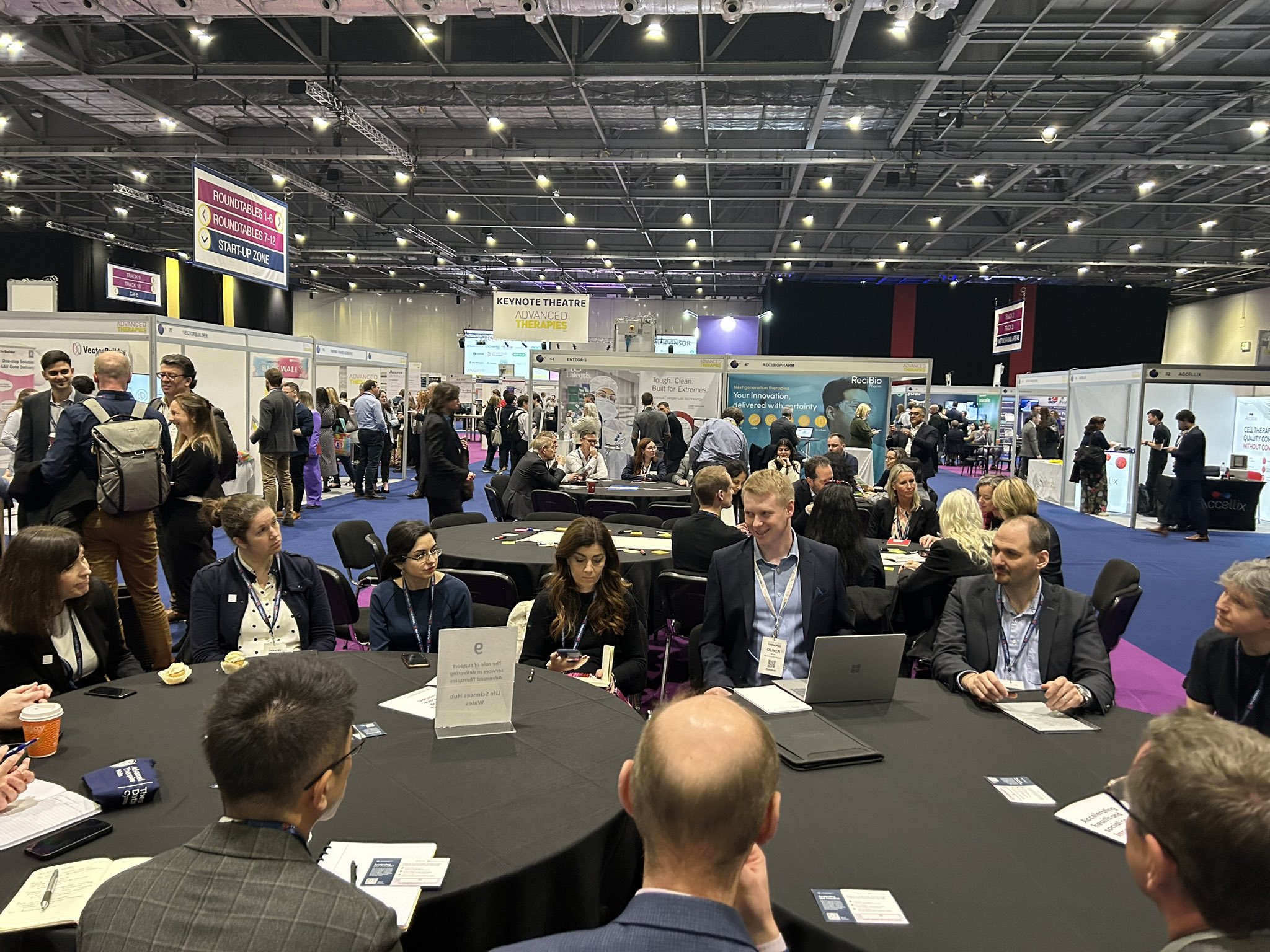The Advanced Therapies congress was an excellent event. I immersed myself in dynamic discussions, workshops, and networking opportunities, as well as hosting my very own roundtable.

Engaging with experts from industry, academia, biotechnology, pharma, and beyond we delved into strategies and discussions on overcoming challenges and driving progress in the advanced therapies field.
In the ever-evolving landscape of healthcare, advanced therapies offer ground-breaking treatment options for numerous conditions. However, the successful delivery of these cutting-edge treatments often present a unique set of challenges, requiring seamless coordination and collaboration across various sectors. Hosting a roundtable discussion that delved into the crucial role of support services in facilitating the delivery of advanced therapies, brought up many key discussion points.
Engagement between Pharma and Clinicians
One of the central themes revolved around enhanced engagement between pharmaceutical companies and those involved in clinical delivery, such as pharmacists, logistics, as well as nurses and doctors at the process design phase. We recognised the constraints within NHS settings, such as resources, limited space, and aseptic facilities, which pose significant hurdles in carrying out complex processes. Addressing these challenges requires more proactive collaboration and dialogue to make sure that therapy designs are feasible and tailored to real-world clinical settings.
“The main takeaway is communication, and those early conversations between Industry and NHS. We need industry to really understand the implications of how things actually work in the NHS, and putting that into their development processes, and the impact it can have.” – Hannah Crocker ATMP outcomes programme manager, NHS Wales Joint Commissioning Committee.
Training challenges
Another pressing issue that surfaced, was the challenge of training NHS staff amidst limited resources and time constraints. With multiple platforms and workflows in play, streamlining training processes emerged as a crucial necessity to empower healthcare professionals, effectively.
Integration of digital platforms
A key topic discussed about the company TrakCel, a pioneering cell and gene therapy digital platform for managing advanced therapy supply chains, highlighted the importance of integrating these systems to streamline processes. By providing a comprehensive solution, TrakCel ensures that patients have access to life-saving therapies in a safe and efficient way. The platform offers a full audit trail of the treatment pathway, enhancing transparency and accountability of every stage of the process.
The feedback from the roundtable attendees highlighted the benefit of having all significant information centralised, simplifying workflows and enhancing efficiency. The number of software licenses required are often overlooked, and moving forward we need to ensure that all staff involved have their own software license. TrakCel is bridging the gap between patients, healthcare providers, and the network of stakeholders involved in the journey of these groundbreaking treatments and stands as a fundamental asset in advancing the field of advanced therapy delivery.
“The discussions today have been very positive, we’ve seen discussions around achieving one single portal for clinical trials, which would be game changing if this can be delivered at a scalable rate. Especially with the constraints around training, and how quickly the platform is to train is great to help expedite.” – Bahareh Armiloo, Lead Pharmacist for Advanced Therapies at Manchester Foundation Trust.
Open dialogue on failure
Key questions arose about the need to discuss failure more openly. Fostering a culture of open dialogue surrounding trial site selection emphasising the importance of discussing failures alongside successes. Discussions around failure should happen within the NHS, with industry and with area specific programmes such as Advanced Therapies Wales. By openly addressing the reasons why certain sites may not be suitable for trials, we can identify areas requiring investment and improvement, optimising the delivery process.
Challenges and barriers to uptake
Understanding the manufacturing process and its alignment with clinical input, emerged as critical considerations. Challenges such as staffing shortages, and infrastructure limitations in NHS settings underscored the need for innovative solutions to bridge these gaps.
Various barriers to uptake, including the need for more promotional events and collaborative forums, were identified. It was evident that fostering a culture of collaboration and knowledge-sharing, poses a big step in overcoming some of the barriers and driving progress in this field.
Collaboration and communication
Effective communication between industry stakeholders and healthcare providers is pivotal for practical and successful implementation of therapies in real-world settings. Navigating the complexities of advanced therapy delivery requires a pragmatic approach rooted in collaboration and innovation, and by fostering these collaborative partnerships, we can collectively drive advancements in healthcare delivery.
In conclusion, the roundtable discussion served as a reminder of the multifaceted challenges and opportunities essential in the delivery of advanced therapies. Through collaborative efforts, dedication, and a commitment to innovation, we can build a new era of transformative healthcare delivery.
If you’re a health and social care organisation looking to drive innovation to the frontline, we’re here to help. Reach out to discover how we can collaborate and make a significant impact together. Get in touch here.



